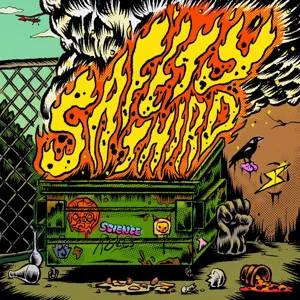Podcast Summary
Utilizing Data for Business Growth and Personal Health: Squarespace provides valuable business insights and analytics, while Dexcom's G7 offers accurate glucose monitoring, both essential for improvement and growth in their respective domains.
Squarespace provides valuable business insights and analytics for its users, enabling them to grow their businesses by understanding their site traffic, sales sources, and popular products or content. Additionally, the Dexcom G7 offers accurate glucose monitoring, allowing individuals with diabetes to make informed decisions for better health outcomes. While discussing unrelated topics, the hosts shared an interesting historical fact about the William Carson shipwreck. Despite the loss of cars on board, no souls were actually lost. This anecdote serves as a reminder of the importance of accurate information and its potential impact. Overall, this podcast episode highlighted the significance of utilizing data and insights to improve various aspects of life, from business growth to health management. For those interested, Squarespace offers a free trial and a discount for new website or domain purchases, while Dexcom's G7 system can be explored at their website.
Icebergs: More Than Just Floating Ice: Icebergs are large pieces of glaciers made up of frozen seawater, and they can be deadly to ships, as evidenced by numerous tragedies in the last century.
Icebergs are not just chunks of floating ice as they appear. They are large pieces of glaciers that have calved off and are made up of frozen seawater. Between 1882 and 1890, 14 passenger liners went down in the area known as Iceberg Alley, but it was only in the last 25 years that we started tracking icebergs. We have learned a great deal in that time, and we continue to do so. Icebergs are not just harmless chunks of ice; they can be deadly. The SS Haslibur, for example, sank in 1959 during its maiden voyage, taking 95 lives with it. This tragedy, along with others, highlights the importance of understanding icebergs and the role they play in our oceans.
Icebergs: Large chunks of ice that float in the sea: Icebergs are large chunks of ice that form from glaciers, float in the sea due to their less dense structure, and are primarily found in polar regions
Icebergs are large chunks of freshwater ice that break off from glaciers and float in the sea. They form primarily in polar regions, such as Greenland and Antarctica. Icebergs are less dense than the seawater they float in due to their crystalline structure, which allows air to be trapped within them. This is why only a portion of an iceberg is visible above water, with the larger portion remaining submerged. Icebergs can get quite large due to the vast open sea surrounding ice-covered continents like Antarctica. Ice is the solid phase of water, and it's unique in that it's less dense than its liquid form. When water freezes, it expands and becomes less dense, which is why an iceberg can float in seawater. This property is known as buoyancy, and it's the reason why only a portion of an iceberg is visible above water.
Exploring Unique Online Platforms for Kids and Businesses: Online platforms for kids and businesses offer unique features and strong security measures, ensuring safety and creativity for their users.
Just like icebergs, which come in various sizes and colors due to differences in salt concentration and density, there are safe and fun online platforms for kids, like Zigazoo, that offer unique features and strong security measures. Meanwhile, tools like Squarespace's Fluid Engine provide an unbreakable platform for creativity and business, with a user-friendly design system and customizable templates. Furthermore, icebergs' appearance and behavior showcase their long life cycles and potential dangers, making them a fascinating natural phenomenon. In the digital world, platforms and tools offer unique benefits and experiences, while maintaining safety and creativity for their users.
Icebergs: From Growlers to Gigantic Formations: Icebergs come in various sizes, from small growlers to massive formations up to 6,800 square miles. They can remain in colder regions for decades before melting away, and the largest ones can explode due to thermal shock.
Icebergs come in various sizes, with the smallest ones called growlers and the largest ones reaching up to 6,800 square miles, like the B-15 iceberg that broke off from Antarctica. The larger icebergs, such as the one Dr. Gregory Stone witnessed, can explode due to thermal shock as they melt and shrink, creating an ice debris field. These fascinating natural formations can remain in colder regions for up to 50 years before slowly melting away. Interestingly, their sizes are classified in an intriguing way, starting with growlers and progressively naming them based on size, with the largest ones being the least interestingly named.
Icebergs come in various sizes and shapes: Icebergs form off the western coast of Greenland, are about 10% as strong as concrete, and move due to currents. Greenland produces 40,000 medium to large icebergs annually.
Icebergs come in various sizes, classified as small, medium, large, very large, and have different shapes such as tabular and non-tabular. Very large icebergs are about 24 stories tall and longer than two football fields, while tabular icebergs have a width five times greater than their height and a flat top with steep sides. Non-tabular icebergs come in different classifications like blocky, flat-top steep sided, wedge-shaped, dome-shaped, pinnacle-shaped, and dry docks. Icebergs primarily form off the western coast of Greenland, where there are about 20 glaciers that cap the majority of them. Icebergs are roughly 10% as strong as concrete and are subject to wave motion, storms, and collisions with other icebergs, which affects their lifespan. Icebergs move due to currents rather than being driven by ships, and a fast-moving iceberg goes about 2.2 miles per hour. Greenland and Antarctica are the only places with true glacial sheets, and roughly 40,000 medium to large icebergs calve from Greenland glaciers each year.
Icebergs: More Than Just Floating Ice: Icebergs release nutrients, support unique ecosystems, indicate climate change, and pose challenges.
Icebergs, though seemingly simple floating structures, play a significant role in various ecosystems and the environment. They are trapped in currents and can strike the seafloor, causing geological changes. Icebergs release nutrients, particularly iron, as they melt, creating a unique food chain around them. This food chain supports various marine life, including krill, plankton, and fish. Additionally, icebergs are a sign of climate change and aid in carbon sequestration in the ocean by absorbing CO2 and trapping it with the sinking remains of the food chain. However, they can also pose challenges, such as clogging shipping lanes and impacting wildlife populations.
Exploring Icebergs as a Source of Fresh Water: Icebergs could potentially provide fresh drinking water to millions, but the high cost and feasibility issues make it less viable than other proposed solutions
Icebergs, despite being a potential hazard to ships and marine life, could also be a valuable source of fresh drinking water for regions facing water scarcity. The US military has explored the idea of transporting icebergs to provide water for up to 500 million people, although the cost is currently high. The process involves nudging the iceberg closer to warmer waters and using insulating sheets to slow down melting. While there are other proposed solutions like pipelines and canals, the high cost and feasibility issues make them less viable. The International Ice Patrol, formed by the US Coast Guard, plays a crucial role in warning ships about the location and size of icebergs in Iceberg Alley.
Beyond the ice limit: Coast Guard activities and Zigazoo for kids: The Coast Guard advises against traveling beyond the ice limit due to ice presence, while Zigazoo is a kid-safe social media platform for content creation and sharing
There's a boundary called the limit of all known ice, beyond which the Coast Guard advises against traveling due to the presence of ice. The Coast Guard also engages in activities like bombing icebergs and marking them with bright paint or radio transmitters to aid navigation. Meanwhile, Zigazoo is a social media platform designed specifically for kids, where they can safely upload and share content, create videos, and enter contests. The platform is human-moderated and free of bots, trolls, or AI. In other news, an article mile is 1.1508 miles long, taking into account the curvature of the earth, while a regular mile, or statute mile, is a straight-line measurement that does not account for the earth's curvature. The nautical mile is more accurate and longer than the regular mile due to this consideration.
Distance measurement varies depending on context: A mile or kilometer's length can differ based on terrain and measurement method, making distance a complex concept.
The distance measurement we commonly use, like a mile or a kilometer, may not be as straightforward as we think. A mile, for instance, is not the same when measured as a straight line on land versus a curved line along the Earth's surface. The French Academy of Sciences defined a kilometer based on the distance from the North Pole to the equator through Paris, divided by 10,000. Meanwhile, we're announcing a horror fiction contest for our listeners, where the winning story will be read as our Halloween episode. We'll judge the submissions based on the interestingness of plot, awesomeness of characters, well-paced pacing, scariness, and overall quality of writing. So, let's get creative and send in your best horror stories!
Discovery.com's Scary Story Contest and Language Evolution Discussion: Discover.com's contest invites Americans aged 18+ to submit original scary stories between 3,000-4,000 words. Language evolved to help early humans maintain social bonds in larger groups, as shown in Robin Dunbar's book and an experiment with vervet monkeys.
From June 18th to July 20th, Discovery.com is hosting a contest for original stories with a word limit between 3,000 and 4,000 words. Contestants must be Americans aged 18 or above, and each person can only submit one entry. Emails must include the statement "by participating in this contest, I agree to abide by the contest rules." No pseudonyms are allowed. The submissions will be judged after the deadline, and the goal is to create the scariest stories possible. Meanwhile, a fascinating discussion about the evolution of language was brought up during the listener mail segment. According to Robin Dunbar's book "Grooming, Gossip, and Evolution of Language," language evolved as a way for early humans to maintain social bonds within larger groups, as our brains grew larger and our average group size increased. An experiment involving vervet monkeys also showed that they made distinct sounds for different situations, which could be analyzed to understand their meaning. So, submit your scary stories to Discovery.com within the given time frame, and let's see if you can outdo each other in creating the most terrifying tales! And, as a side note, the evolution of language is a fascinating topic that has deep implications for our understanding of human history and social dynamics.
Discovering New Books and Connecting with Others: Listeners can share book recommendations on social media and discover new reads, while Zigazoo offers a safe platform for kids to explore and connect, and the U.S. Department of Veterans Affairs offers rewarding careers with benefits and growth opportunities.
The podcast "Stuff You Should Know" encourages their listeners to share book recommendations and discover new reading materials. This can be done through various platforms such as Twitter, Facebook, or email. The hosts also discussed the safety and positivity of the social media network Zigazoo, which is specifically designed for kids and has human moderation. Additionally, they highlighted the opportunity to join a meaningful career at the U.S. Department of Veterans Affairs, offering benefits, work-life balance, and career development opportunities. Overall, the podcast promotes engagement from their audience and shares valuable information and resources.






